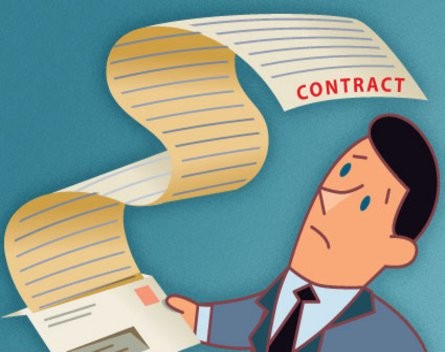
StartupSmart is running a five-part series to help plug any potentially disastrous knowledge gaps that new entrepreneurs may have regarding legal issues.
Lachlan McKnight, CEO of LegalVision, has already covered off legal structures and lurking online pitfalls. Today, McKnight talks documents.
Managing a start-up means you need to do a bit of everything; marketing, sales and accounting. On occasion, you will also have to get involved in reviewing legal documents.
Although you will usually have a lawyer on hand to help you with legal matters, it’s helpful to have a basic understanding of some of the more common documents you’re likely to come across.
In this article we will give a quick run-down of the following documents: service agreement, distribution agreement, consignment agreement and software licence.
Hopefully this overview will allow you to gain a high-level understanding of these documents.
Service agreement
A service agreement is an agreement made by two parties; a client (usually referred to as the “principal”) and a service entity (usually referred to as the “service provider”).
A service agreement documents the agreement between the two parties with regards to the performance of the service(s) by the service provider, which can be either one-off or ongoing.
You should keep an eye out for the following terms when reviewing a service agreement:
- The term of the agreement (make sure it’s not for longer than you intended).
- The fees and expenses that the service provider will charge.
- The insurance, taxation and superannuation obligations of the parties (generally you want each party to take care of these themselves).
- Whether the service provider can subcontract the services to a third party.
- Confidentiality and privacy clauses (make sure these are included if confidentiality is an issue for your business).
Service agreements are very common and can be used in a wide variety of circumstances. The chances are you will see one in your start-up career.
Distribution agreement
A distribution agreement sets out the terms and conditions pursuant to which one party (the “manufacturer”) agrees to allow the other party (the “distributor”) to distribute certain goods manufactured by the manufacturer.
If you’re involved in importing products and distributing them, or distributing local goods within Australia, it’s likely that you will need to review a distribution agreement.
When reviewing a distribution agreement you should look for some of the terms mentioned above in relation to the service agreement, such as the term of the agreement, confidentiality and privacy clauses and the fees and costs associated with the distribution.
In addition, you should look for any clause prohibiting the distributor from distributing other similar goods and whether the manufacturer may appoint only one distributor with exclusive distribution rights or many distributors (in which case the agreement is non-exclusive).
Generally, distribution agreements require the distributor to order and pay for the goods before they can be collected by the distributor from the manufacturer, unless otherwise agreed by the parties.
If goods are to be purchased on credit or consignment then a separate agreement (such as a credit contract or consignment agreement) should be entered into by the parties in addition to the distribution agreement.
Software licence
A software licence is an agreement entered into by a software owner or person/organisation with rights to software (the “licensor”) and another party who wishes to use, but not purchase, the software (the “licensee”).
Many start-ups in the technology field will be either a licensor or a licensee at some stage during their existence.
Important clauses you should look out for include:
- The term of the licence. Some software licences are limited to a specified period, others can be perpetual (i.e. forever).
- Whether the licence is revocable (i.e. can be withdrawn) or irrevocable (i.e. cannot be withdrawn).
- Whether the licence is exclusive (i.e. only licensed to the licensee) or non-exclusive (i.e. the licensor can licence to third parties).
- Whether the licence includes a right of sub-licence (i.e. whether it may be licensed by the licensee to third parties).
- Whether the licensee is required to pay a fee or royalty to the licensor.
- Whether the licence is limited to a specified area (e.g. in Australia) or is unlimited (e.g. worldwide).
- What the licence allows the licensee to do. For example, whether the licensee is allowed to copy, modify, reproduce, reverse engineer or alter the software.
If you are licensing your software and you’re a technology start up, it’s likely this will be your primary source of income.
Be careful with any software licence you enter into. You should enter into a software licence before providing the software to the third party or get a lawyer on board to advise you – there is no shortcut!
Know what you’re getting into
You’re likely to come across many legal documents during your time running a start-up. Obviously teaming up with a good lawyer is important, but you should take the time to read and understand any documents you’re signing. Look for the important clauses and make sure they make sense.


COMMENTS
SmartCompany is committed to hosting lively discussions. Help us keep the conversation useful, interesting and welcoming. We aim to publish comments quickly in the interest of promoting robust conversation, but we’re a small team and we deploy filters to protect against legal risk. Occasionally your comment may be held up while it is being reviewed, but we’re working as fast as we can to keep the conversation rolling.
The SmartCompany comment section is members-only content. Please subscribe to leave a comment.
The SmartCompany comment section is members-only content. Please login to leave a comment.